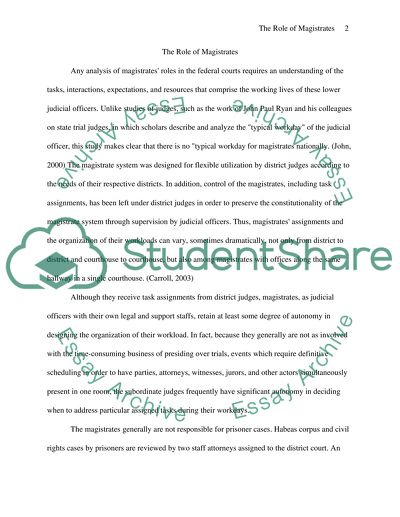Cite this document
(“The Role of Magistrates Essay Example | Topics and Well Written Essays - 3000 words”, n.d.)
The Role of Magistrates Essay Example | Topics and Well Written Essays - 3000 words. Retrieved from https://studentshare.org/law/1532540-the-role-of-magistrates
The Role of Magistrates Essay Example | Topics and Well Written Essays - 3000 words. Retrieved from https://studentshare.org/law/1532540-the-role-of-magistrates
(The Role of Magistrates Essay Example | Topics and Well Written Essays - 3000 Words)
The Role of Magistrates Essay Example | Topics and Well Written Essays - 3000 Words. https://studentshare.org/law/1532540-the-role-of-magistrates.
The Role of Magistrates Essay Example | Topics and Well Written Essays - 3000 Words. https://studentshare.org/law/1532540-the-role-of-magistrates.
“The Role of Magistrates Essay Example | Topics and Well Written Essays - 3000 Words”, n.d. https://studentshare.org/law/1532540-the-role-of-magistrates.


